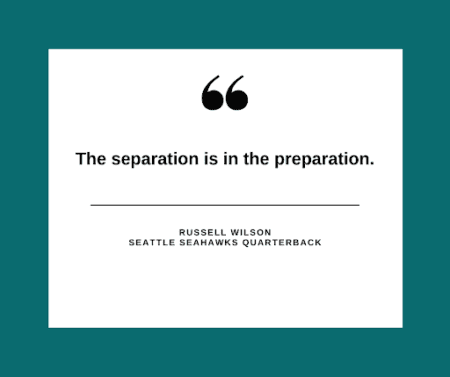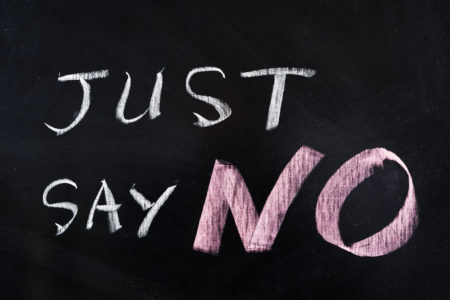
How to Avoid Being a Disaster in an Interview
If you’re in the throes of interviewing, this is your opportunity to shine.
Unfortunately, many candidates let their big moment go to waste.
I’ve had countless conversations with founders over the years who told me stories about disaster interviews – especially today when so much of this is being done remotely.
When the goal of an interview is to stand out and make a good impression, the last thing you want to do is stand out for all the wrong reasons!
I recently caught up with a founder I’ve known for a long time. He was a bit frazzled because of the interview he just had. It was the opposite of what he had hoped for.
When I asked him what happened, he told me they were hiring a Director to oversee one of their CS teams. The candidate was on the beach, the wind was blowing, it was hard to hear, they weren’t very prepared, and they didn’t seem to have a care in the world that they were in an interview.
Of course, that candidate wasn’t invited back for the next round. How could they expect anything different?
If you accept an interview, it’s important that you take it seriously. You owe it to yourself and the hiring managers on the other side.
In addition to making a poor first impression, winging an interview from a beach with a cocktail in your hand won’t do you any favors to land that cherry role and will only waste everyone’s time (including yours). It’s also a lackluster first impression, and you only get one chance to make one.
So I’d like to set the record straight to help you avoid being that person. If you want to seriously impress during your next interview, avoid being a disaster during the process, and get the gig, this article breaks down everything you need to know.
Hiring managers pay CLOSE attention during interviews
Interviews have one overarching purpose: to quantify and qualify if the dots connect for both parties involved.
Here at Avenue Talent Partners, we pay close attention to three things and encourage our clients to do the same thing:
- Skill
- Will
- The “lean in” factor
So for a hiring manager, the wheels are constantly turning…
- How does this person communicate (verbally, nonverbally, digitally?)
- How will that translate to communicating with our team?
- How will that translate to communicating with our customers?
- What will this person actually be like to work with?
- Does this person take important meetings seriously?
- Did they care about the task at hand? If they didn’t care about how they showed up to this important meeting, chances are it won’t get any better later.
To a hiring manager, your interview represents your skills, personality, and ability.
They’re not going to extrapolate the interview to imagine the optimal version of you. YOU have to bring it when the moment arrives and what you show up with and how you show up with it matters.
Hiring managers are looking closely at how you interview to imagine how you’ll be in the actual role.
You only get one chance to make a first impression
Most people focus their interview prep on the most common questions that interviewers ask. They prepare scripted responses, are ready to discuss their skills/experience as it relates to those items, and have done some research on the company.
And hey, those things are good, but they merely scratch the surface. There’s a lot more that goes into making a good first impression to truly stand out.
Here are a few quick tips for your next interview:
- Show up on time – Showing up late for an interview raises red flags for hiring managers. If you’re not going to take this meeting seriously, why would you in the actual role? Treat every interview as the most important meeting of your life.
Pro tip: If you have a business commitment before the interview that runs the risk of running right up to the interview, let the people you’re meeting with for the interview know in advance. That way, if you’re a couple of minutes late, they’ll have context, you can fall on your sword, and you’ll have reduced the mark against you. A bit of self-awareness and proactive communication goes a long way!
- Confirm the agenda in advance – This way, you can ditch your assumptions and focus your preparation accordingly. Confirm who you’ll be meeting with and what they’d like to cover during your time together. That way, you can research their role, what they’re talking about, connect your relevant dots back to them and the work they’ve been doing, and figure out what part of the job description applies to them and how you’ll be able to help.
- Turn off your notifications – A ringtone or slack notification with your eyes gazing to the other screen in the middle of an interview is a real buzzkill and can set the whole thing off course. It’s easier to just turn your notifications off and put 100% of your focus on the task at hand.
- Get organized beforehand – Get clear on what you bring to the table.
Do you know what your superpowers are? Have 2-3 power statements for the following:
-
- What did you do?
- Where did you do it?
- Who did you do it with?
- How did you do it?
- What were the outcomes?
- How did the business get better as a result?
- What lessons were learned that apply to the interviewer?
As you get it down on paper, as yourself, “so what?” Why would the potential employer care/be compelled? You only have a short amount of time to connect the dots. Make this time count.
Make sure your resume is polished and ready to go, and your references are on the ready. Don’t make it a nuisance to hand them over. This simple step creates efficiency and makes you seem more prepared… another opportunity for you to stand out.
Pro tip: Review the job description and highlight all of the areas where you can help, what you’ve mastered, and have crisp examples and the numbers to back it all up.
- Body language matters – You can say all the right things, but if you’re not making eye contact, doing a deep eye roll, sighing, crossing your arms, or slouching in your chair, it’s not going to land the right way.
With so many interviews being done remotely, these rules apply, and then some. What is your digital body language saying? A few tips to put your best foot forward:
-
- Announce that you’re taking notes and that you may be looking to the side as a result
- If you know the landscaper next door is about to show up, let them know
- Make sure your space is neat and tidy. Interviewing in front of a stack of clothes or in an unorganized room isn’t a good look. Remember: how you present yourself – in any interview environment – is how you’ll be perceived in the role itself.
Digital screen backgrounds and blur options are your friends. As my mom used to say, make your bed! - Self-awareness is key here. Do you have a cat at home that might walk across your desk during the interview? Or a young child at home that might make some awkward noise in the distance? Don’t try to ignore them – disclaim those potential disruptions up front. That shows that you’ve covered your bases and are attentive to the details.
- Acknowledge every person on the screen, people like to be seen, heard, understood, and validated.
- Working at a company means being able to navigate interpersonal relationships and body language in person and digitally has a HUGE impact on how you’re perceived!
- Ask Questions – “Amy, what should I ask in an interview?” This is one of the most frequently asked questions I get. The best questions you can ask come from what you’re interested in understanding because it’s important to you and your decision. After all, this is your career and a big life decision.
Pro tip: Use an interview scorecard so you’re clear on the categories that are important to you and can guide you when it comes time to ask questions.
- Take notes – This is an excellent way for you to understand what you’re hearing, showcase that you care, and are taking the time together seriously. It’s also a lifesaver to help you highlight interesting details to drill into further when the time comes for questions.
Gratitude and manners
I’ve had conversations with two Operating Partners at big VC’s, one Founder, and one Executive Sales leader.
The common theme?
They all talked about not moving forward with candidates because they failed to send a thank you. The littlest things can make the biggest difference, and a bit of gratitude goes a long way. The power of a thoughtful thank you is fierce and can make or break your ability to close a deal or get the job.
Remember, it’s an opportunity to shine bright while:
- Showcasing you’re genuinely interested
- Highlighting how you can help
- Pinpointing why you’re the person for the job
- Helping you stand out from the rest
- Reinforcing how you’ll be with the team and the customer
- Illustrating your self-awareness to address the areas that fell short
- Declining the opportunity in a classy way to leave the door open
How you do one thing is how you do everything as they say and this is no exception to that rule.
So, the next time you find yourself in an interview, even if you’re not interested, send the darn thank you.
I promise there is no downside to this. When people care, it comes through. And when they don’t, that comes through too. Choose wisely, friends.
Preparation is key

If you want to stand out from the sea of other good people going for the SAME job, good preparation is the way to get there.
You’d be surprised how many people show up to interviews unprepared for the basic questions, with no background on the company they’re interviewing for and no specific questions about the role. That’s a disaster!
That said, interviews can feel like the big stage, all eyes are on you, and that’s a bit nerve-wracking, to say the least. Good preparation also helps to increase confidence and quell those nerves.
The more you dig into their company, what they’re talking about, what’s happening in their marketplace, what their customers are talking about, what you’ve mastered, the lessons you’ve learned, and what’s important to you, the easier it will all be in the moment. Being prepared is the secret sauce for you to show up at your very best.
It’s a big, small world
It might not seem like it, but we’re all connected, especially in this digital age. And word gets around fast… even when you may not realize it.
If you show up unprepared and unprofessional in an interview, it’s possible that other people and companies are going to hear about it. And while that may not matter to you today, you never know where your paths may cross again in the future.
That’s why you should always treat every interview with the respect and care it deserves.
If you can’t do this, a simple “no thank you” will save you a lot of time, energy, and angst later.
I promise it’s not worth wasting other people’s time and tarnishing your reputation in the process.
Wrapping Up
Good news! If you follow these tips, you can avoid the disaster stories I hear about from hiring managers behind the scenes.
With the right preparation and care, you can make a fantastic first impression, nail the interview, and leave them wanting more.
You’ve got this!
